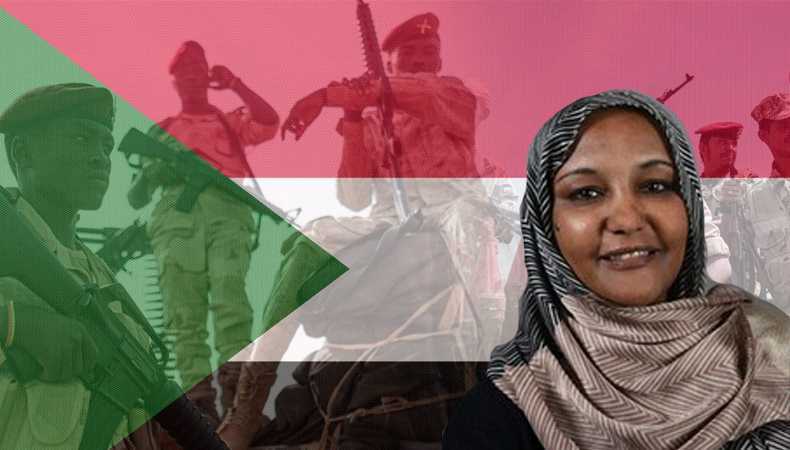Political Solutions Must Involve Sudanese Women

Over three months ago, Sudan’s army and Rapid Support Forces (RSF) paramilitary groups clashed in Merowe and Khartoum. Later, Darfur violence resumed. The conflict has caused thousands of deaths and injuries, sexual and gender-based violence, and displaced almost three million people to safer areas or neighboring countries.
Thus, many commentators, analysts, and political, and policy actors emphasize the need to end the war, address its consequences, ensure justice, and support a civilian-led democratic order. It’s important to consider how this would happen and recognize that war, peace, social justice, and political processes are gendered, racialized, and embedded in other hierarchies. This will enable better responses to this war and others and more meaningful solutions that involve the diverse people of Sudan, especially women, at all levels.
The 2018/2019 uprising’s impact on Sudanese women has been widely celebrated. Thus, grassroots women have supported communities in women-only cooperatives and neighborhood committees, and now they are regrouping and strategizing to address current challenges.
The war’s early weeks showed why gender equality and women’s experiences matter. A pregnant woman on her way to a Khartoum hospital to give birth was the first civilian “casualty” of violence. After Rapid Support Forces (RSF) soldiers stopped her car, the driver drove to the hospital, so they shot and killed her and her father. The baby was delivered by c-section. Labor cannot be rescheduled, unlike other medical procedures.
Many of Khartoum’s tens of thousands of pregnant women went into early labor due to fear and trauma in hospitals operating at 30% capacity.
Sexual violence in greater Khartoum, Darfur, and Al-Gueneina has also been expected. On June 20, Sudan’s Combating Violence Against Women Unit director reported 61 SGBV cases in Khartoum and Darfur. However, low reporting due to stigma and shame associated with victims and survivors of sexual violence rather than perpetrators makes this a conservative figure.
Since the conflict began, women on the ground and healthcare workers have reported numerous cases of rape and other sexual violence against women of all ages in greater Khartoum, especially young women who are often abducted and raped by RSF soldiers in abandoned buildings. This is reminiscent of the atrocities in Darfur since 2003, South Sudan in the 1980s and 90s, and other war-torn areas of the country, where women and others lost their lives, livelihoods, were displaced, and suffered sexual and gender-based violence.
Earlier wars in Sudan and across the Middle East and Africa teach us that such violence will likely last for generations, just as militarisation often outlives armed conflicts, especially without appropriate post-war interventions.
The war also devastated other marginalized groups. Older people died on long trips to neighboring countries. Malnutrition killed Khartoum’s poor children. Al-Maygoma Centre for Orphans lost 50 children and infants before a local organization evacuated them to Wad Medani.
Women, neighborhood resistance committees, and women’s street vendor cooperatives have worked to solve some of their communities’ biggest problems.
Women’s resourcefulness, power, and creativity in adversity have been shown in conflicts in Sudan and elsewhere. Women lead potent movements for social change, democratic transformation, peace-making, and community survival.
The 2018/2019 uprising’s role of women from across Sudan has been well-documented and celebrated. Thus, grassroots women have supported communities in women-only cooperatives and neighborhood committees, and now they are regrouping and strategizing to address current challenges.
The gender-specific impact of the war on women and girls and marginalized social groups is gradually being addressed in public and policy discourse on the Sudan crisis. Greater Khartoum is focusing more on sexual and gender-based violence against women. Trauma counselling and other small-scale initiatives support gender-based violence survivors. Women’s organizations and movements are becoming more involved in war-ending efforts, albeit in small ways.
Political solutions must include Sudan’s diverse women. We should influence peacebuilding and post-conflict reconstruction. Sudan’s political establishment and some of the larger civil society platforms will need to critically examine how their practices may have hampered civilian-led, democratic transformation. Rethinking dominant frameworks will challenge militarism, elitism, and misogyny in the country. It will make future political processes transparent, inclusive, and sustainable.




